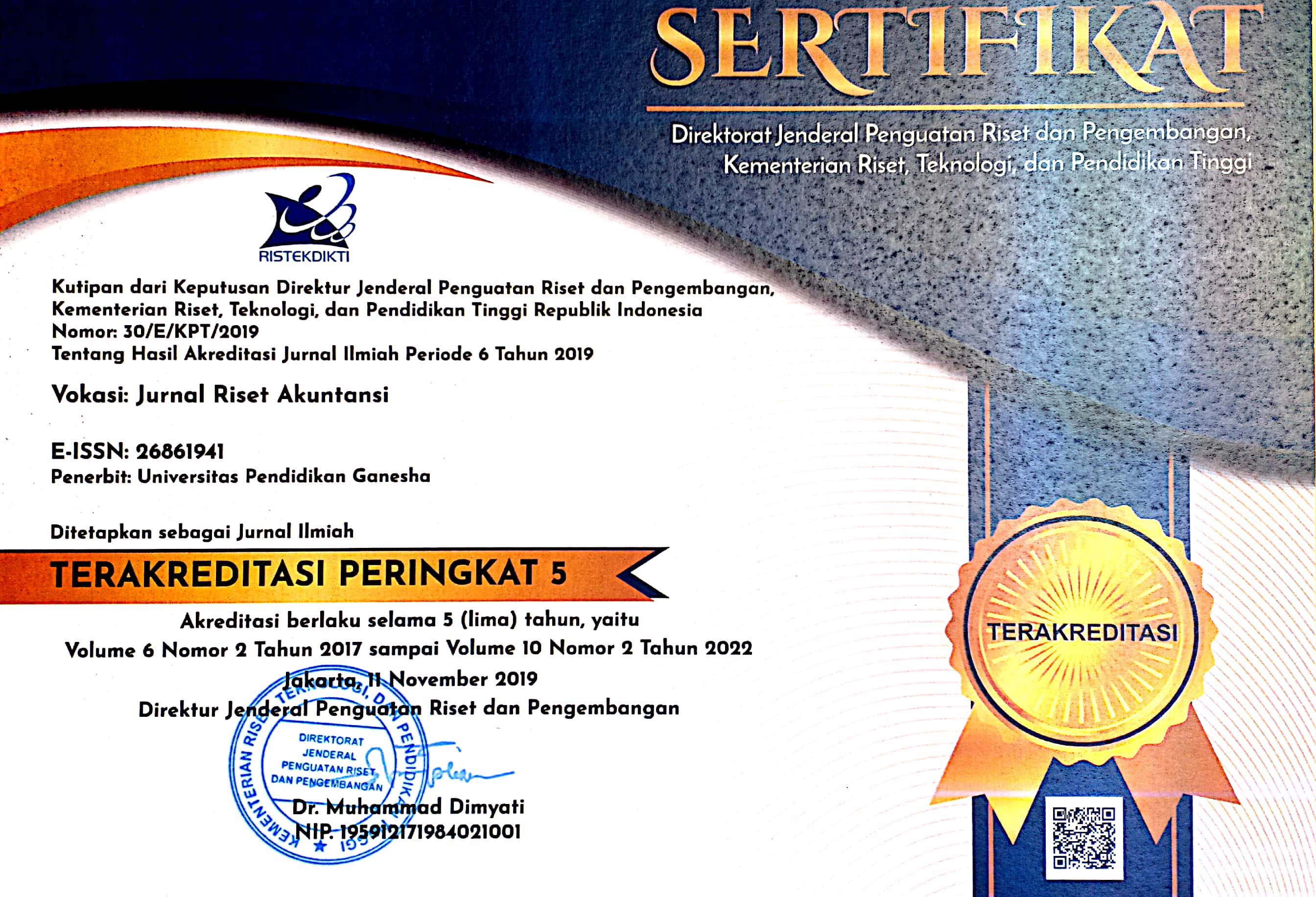Pengaruh Peringkat Obligasi, Tingkat Suku Bunga-Sertifikat Bank Indonesia, Rasio Leverage, Ukuran Perusahaan Dan Umur Obligasi Pada Imbal Hasil Obligasi Korporasi Di Bursa Efek Indonesia
DOI:
https://doi.org/10.23887/vjra.v2i1.1062Abstract
ABSTRAK
Penelitian ini bertujuan untuk mengetahui pengaruh peringkat obligasi, tingkat suku bunga Sertifikat Bank Indonesia, rasio leverage, ukuran perusahaan, dan umur obligasi pada imbal hasil obligasi di Bursa Efek Indonesia. Penelitian terdahulu menunjukkan hasil yang berbeda-beda.Oleh karena itu, perlu dilakukan penelitian kembali yang menguji pengaruh kelima variabel tersebut pada imbal hasil obligasi. Populasi dalam penelitian ini adalah seluruh obligasi korporasi non keuangan yang tercatat dan diperdagangkan di Bursa Efek Indonesia periode tahun 2009 sampai dengan 2010 yang berjumlah 63 obligasi.berdasarkan kriteria purposive sampling diperoleh 33 sampel obligasi. Hipotesis penelitian diuji dengan menggunakan regresi linear berganda (multiple regression). Penelitian ini menyimpulkan bahwa peringkat obligasi dan ukuran perusahaan berpengaruh negatif pada imbal hasil obligasi.Tingkat suku bunga Sertifikat Bank Indonesia dan umur obligasi berpengaruh positif pada imbal hasil obligasi.Sedangkan rasio leverage tidak berpengaruh pada imbal hasil obligasi.
Kata kunci: peringkat obligasi, tingkat suku bunga Sertifikat Bank Indonesia, rasio leverage, ukuran perusahaan, dan umur obligasi.
ABSTRACT
This study aims at knowing the influence of obligation rank, level of interest, of Indonesian Certificate Bank, leverage ratio, size of company, and obligation age on the obligation product benefit at Indonesian Bursa Effect. The previous researches showed a different result. Therefore another research needs to be done in order to test the influence of the five previously mentioned variables towards the obligation product benefit. The population of this study was all of the non-financial cooperative obligations which were recorded and traded in the Indonesian Bursa Effect, during the period of 2009 up to 2010, with the total of 63 obligations. Based on the criteria of purposive sampling technique, 33 obligation samples were obtained. The research hypothesis was tested by using multiple linear regressions. This study concludes that the obligation rank and and the size of the company influenced the product obligation benefit negatively. The Indonesian Sertificate Bank’s interest and the age of obligation influenced level the product obligation benefit positively. While the leverage ratio did not influence the product obligation benefit.
Key words: Obligation rank, interest level of Indonesian Bank Certificate, leverage ratio, company size, and obligation age.









